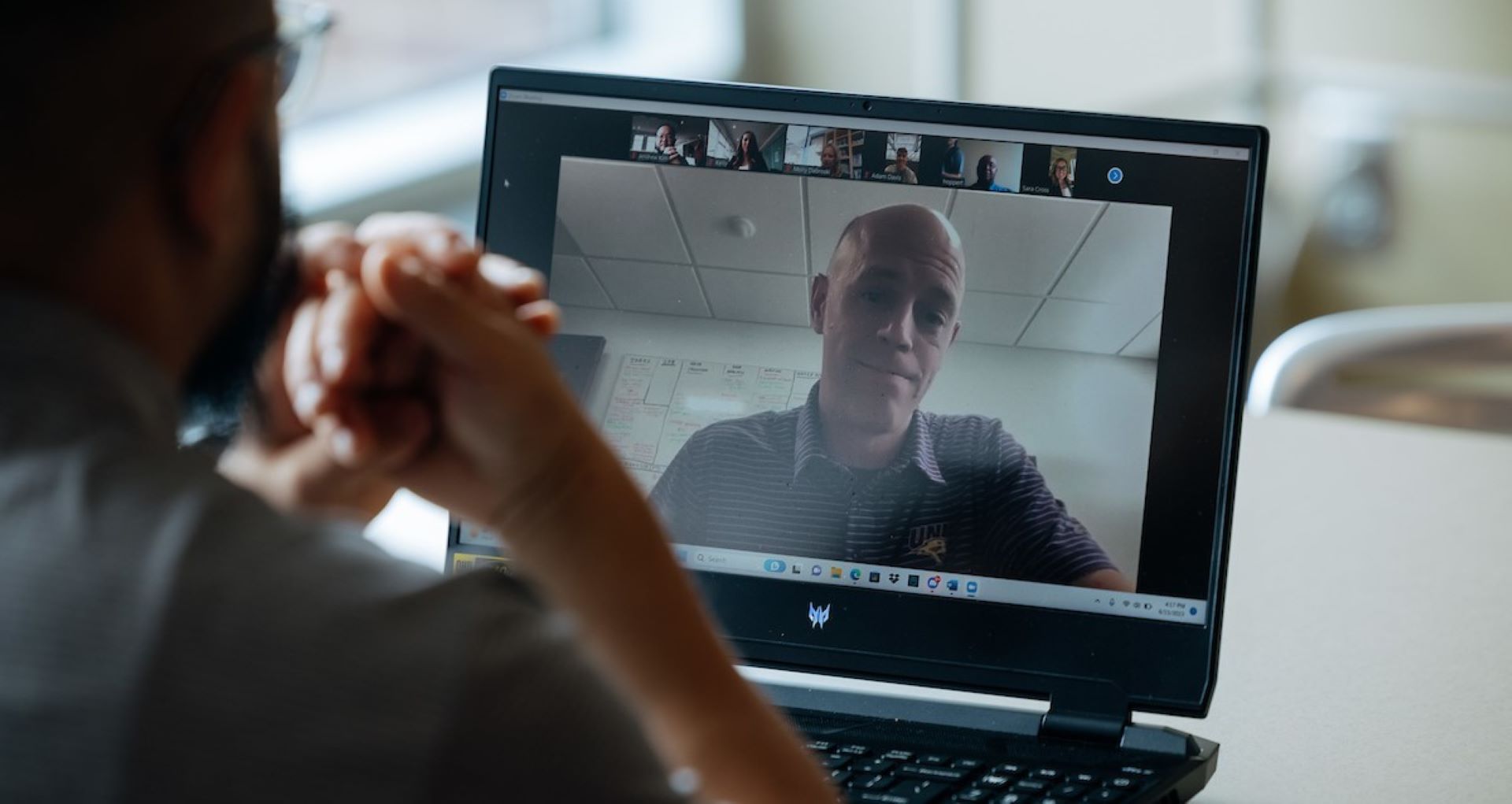A powerful partnership
Of the 40+ online education graduate and undergraduate degrees and certificates or endorsements offered at University of Northern Iowa, 20 are affiliated with the College of Education. In partnership with Online and Distance Education, this alternative pathway to achieve educational goals is recognized for its quality, including recognition by U.S. News and World Report for online master's in education and best graduate education programs.
Students consistently give these options high marks as well. Nearly 98% of graduate students and 96% of undergraduate students would recommend UNI's Online and Distance Education programs to others. That's good news for an option that's attracting more and more interest.
The online evolution
 Progress often happens in spurts. And sometimes it gets a nudge. A very strong nudge, like a COVID-19 pandemic nudge.
Progress often happens in spurts. And sometimes it gets a nudge. A very strong nudge, like a COVID-19 pandemic nudge.
That overstates the history of online education at University of Northern Iowa. But it does reflect the surge in interest for this alternative pathway for students who, post-pandemic, increasingly find online delivery a flexible, convenient option to earn their degree.
From the foundations built through the state-supported Iowa Communications Network in the 1990s, the College of Education was an early adopter of distance education, particularly in its graduate programs. Back then, courses in early childhood education, elementary reading and language arts, early childhood special education, principalship, superintendency and school library studies were all in the mix.
Today, of the 40+ undergraduate, graduate, certificate and endorsement degrees offered by Online and Distance Education (ODE), one-third are College of Education offerings and, moreover, 40 percent are online graduate programs.
ODE provides in-house program coordination and management of recruitment and enrollment of the adult learners seeking these pathways. They partner with college program coordinators and faculty in working through the recruitment funnel, from hosting informational webinars through admission to UNI and as students complete their program of interest.
“The significance is that we do this together. It’s a coordinated effort. We work collaboratively throughout the entire recruitment and degree completion process,” says associate dean Karen Cunningham, continuing education and special programs, which includes online and distance education.
“ODE does a fantastic job helping our students enroll for the next course and receive all of the extra support needed to create a seamless experience for our distance learners,” says Matt Townsley, program coordinator for the Educational Leadership intensive study area in the doctoral program.
As we move beyond the “pandemic” of COVID-19, the willingness to mix modes remains–whether that’s fully online, hybrid (online with some face-to-face on campus) or the latest, hyflex, engaging with students in a combination of online and face-to-face during a class.
For some students, learning remotely can mean the difference in finding an alternative, affordable, yet accessible way to achieve their dreams. And for working professionals–like teachers seeking to advance into administration or adding endorsements like teacher librarian–it’s the doable route in the midst of busy careers.
Three years later
 When COVID-19 hit, many of the college’s graduate education programs–and students–were well positioned, already familiar with this delivery mode. Three years later, that pandemic “nudge” is playing out in ways affecting both undergraduate and graduate and the faculty, staff and students involved, says Cunningham:
When COVID-19 hit, many of the college’s graduate education programs–and students–were well positioned, already familiar with this delivery mode. Three years later, that pandemic “nudge” is playing out in ways affecting both undergraduate and graduate and the faculty, staff and students involved, says Cunningham:
- acceleration of education technology tools
- increased student engagement in online courses
- increased competition for adult learners
- creating a new way of thinking about online teaching and learning
- expanded online offerings.
While not new to remote learning at UNI, “COVID helped to propel online education at a faster, more efficient pace,” says Cunningham.
Robin Dada, head, curriculum & instruction and interim head, special education, and Benjamin Forsyth, associate dean for undergraduate studies and teacher education, see similar patterns of growth and learning.
Prior to COVID, Dada says, online reflected an asynchronous format for curriculum and instruction coursework (work online at your own pace, no student/class/faculty interaction online).
“COVID facilitated our experimentation with synchronous formats that linked professors to students and students to each other,” she says. “We developed strategies for small group work facilitated by Zoom and Zoom was able to accommodate student-organized out-of-class meetings with each other to support study groups and the production of group projects.”
“There is both more willingness and capability from faculty and better instructional tools to accomplish good remote instruction,” Forsyth says. “There is also better reasoning for when remote instruction should not be the preferred format for a course.”
Students also show increased capability to know what it takes to be successful online as well.
Forsyth adds that experience shows a willingness to adapt, while some polarization in preference remains. “The number of people who had actually participated in online instruction prior to the pandemic was relatively small,” he says. “A majority of faculty and students can now say they have had online instruction experiences and some want, or need, more. Others are convinced they want less.”
The online future
 The success of the existing and newer online programs reflect a forward-facing future.
The success of the existing and newer online programs reflect a forward-facing future.
All partners expect continued innovation, adaptation and expansion in online learning. Filling gaps in post-baccalaureate needs, creating a more stackable set of credentials, revisiting the admissions model, adding programs such as a master’s in applied teaching – all are up for discussion, says Graduate College Dean Stephanie Huffman, who also oversees ODE.
The majority of undergraduate coursework remains on campus. For some graduate programs, there are variables–such as accreditation requirements–that keep students on campus. But signs of an ongoing transition persist.
Of COE’s current on-campus graduate programs, school psychology is learning from a hybrid curriculum developed for its federal grant-funded “Grow Your Own School Psychologist” program with three selected area education agencies. And plans are underway to fully shift the master’s in postsecondary education: student affairs to a primarily online program beginning fall 2024.
“ODE, in collaboration with COE, will continue to seek out opportunities to increase accessibility to high- quality, high-demand online programs and courses where internal capacity for program delivery exists,” says Cunningham.
Forsyth expects continued mastery of the online space. At the undergraduate level, methods and field experience courses may seem less amenable to online formats. Yet, “relatively small changes to learning objectives and clever curriculum design decisions make it so that each of these courses could be taught in an online format,” he adds.
Having the in-house support of Online and Distance Education is a plus, he says. “ODE should continue to be one of our strongest partners when it comes to designing and offering remote instruction because remote instruction is at the core of what they do,” he says.
Access to learn
A key outcome of this partnership? Increased access, one of the overarching goals for UNI as a regional comprehensive institution.
“Our access to students that want a quality education, but otherwise cannot come to campus, has never been better. We also have good tools and experience to help us provide remote instruction in a rigorous and meaningful way,” adds Forsyth.
“The collaboration with ODE and the use of online learning have increased access to higher education in populations where higher education was not possible before. The growth of the 2+2 program is a testament to the opportunity that is recognized and the chance to change career and socioeconomic status in families,” says Dada.
“I believe COVID-19 affirmed the importance of online and distance education programs and also helped us understand more deeply how to provide quality online programming,” says Amy Nielsen, interim associate dean of the graduate studies for the college.
“As we look toward the future, I understand online and distance education programs as the future and especially relevant for our university. UNI prepares the majority of Iowa's teachers and it makes sense that we continue to provide learning opportunities through graduate education," she says. "As educators, we recognize the importance of life-long learning and our online and distance education programs provide continued learning for our current and future educational leaders.”
Speaking from experience
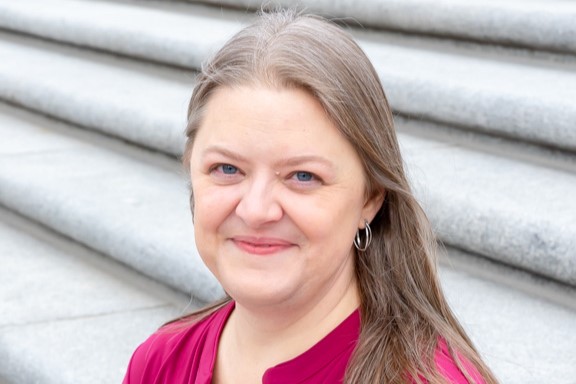
“The distance education model provided by UNI was a great fit for my life. I was pleased that I didn’t need to commute to classes and could still have access to the experts I needed to teach me. Our professors also each understood the life that we were leading and provided flexibility to meet the individual needs of each student." -- Anna Warner, Philanthropy and Nonprofit Development, MA
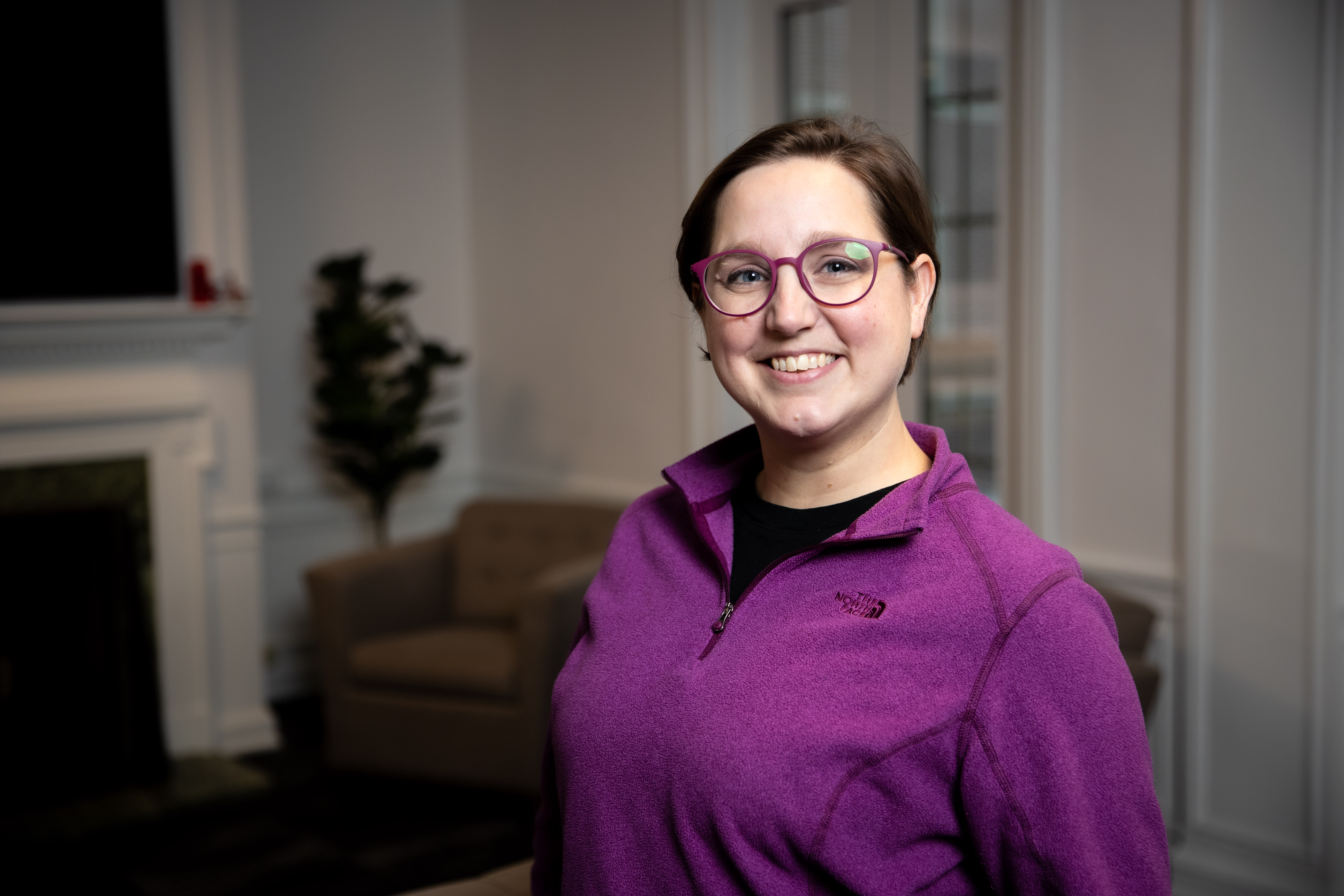 "I was thrilled at the idea of teaching my own classroom. I attend classes over Zoom so I’m home in the evenings with my kids. The professors keep our homework manageable so we don't feel overwhelmed trying to work while we attend school," Melinda Hutchens, (current) Purple Pathway for Paraeducators student
"I was thrilled at the idea of teaching my own classroom. I attend classes over Zoom so I’m home in the evenings with my kids. The professors keep our homework manageable so we don't feel overwhelmed trying to work while we attend school," Melinda Hutchens, (current) Purple Pathway for Paraeducators student
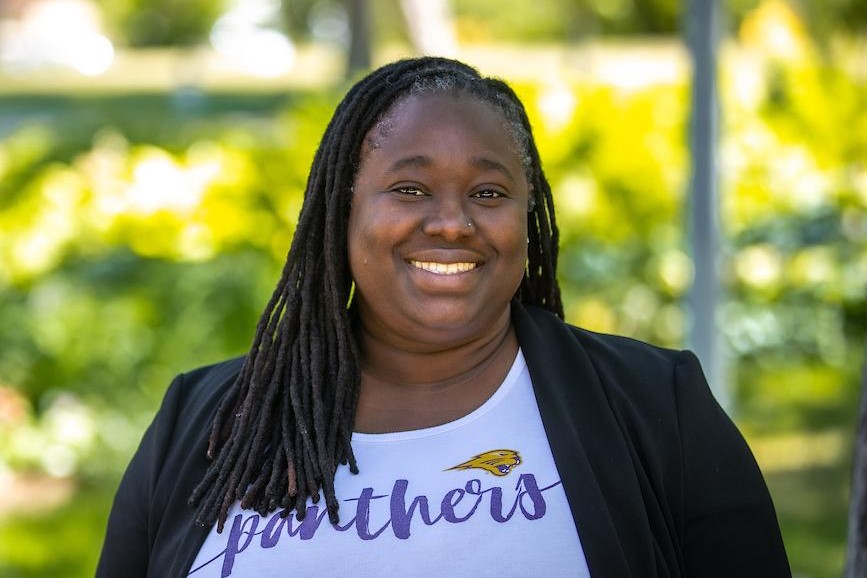 “As a working professional and parent, remote learning has allowed flexibility for me with evening classes. Learning in a remote setting has also given me the opportunity to collaborate with many great individuals, with each of us bringing unique experiences and knowledge to our class conversations, making the learning never-ending.” – Janel Alleyne, ‘23, EdD
“As a working professional and parent, remote learning has allowed flexibility for me with evening classes. Learning in a remote setting has also given me the opportunity to collaborate with many great individuals, with each of us bringing unique experiences and knowledge to our class conversations, making the learning never-ending.” – Janel Alleyne, ‘23, EdD
The next wave
Graduate education has always led the way as adult learners sought flexible ways to advance their education and their careers. For many years, the online 2+2 elementary education program was the college’s sole undergraduate offering. However, just since 2020, four new primarily online pathways have been added:
Doctor of Education, Fall 2020
While elements of the doctoral program included some online instruction in the past, the program was revamped, streamlined and became a primarily online program in 2020. After working through this transition, enrollment has increased, with almost 60 students in the 2022 cohorts within four intensive study areas currently offered. Associate Professor Matt Townsley notes a shift to a hybrid model for the doctoral program was already on its way as COVID-19 hit. He now considers that move visionary. “I think everyone, students and faculty, look back and are grateful we made that decision,” he says. “We are actively recruiting for the next cohort and prospective students come to us with the expectation that our program will include a flexible delivery model,” he adds.
Purple Pathway for Paraeducators, August 2022
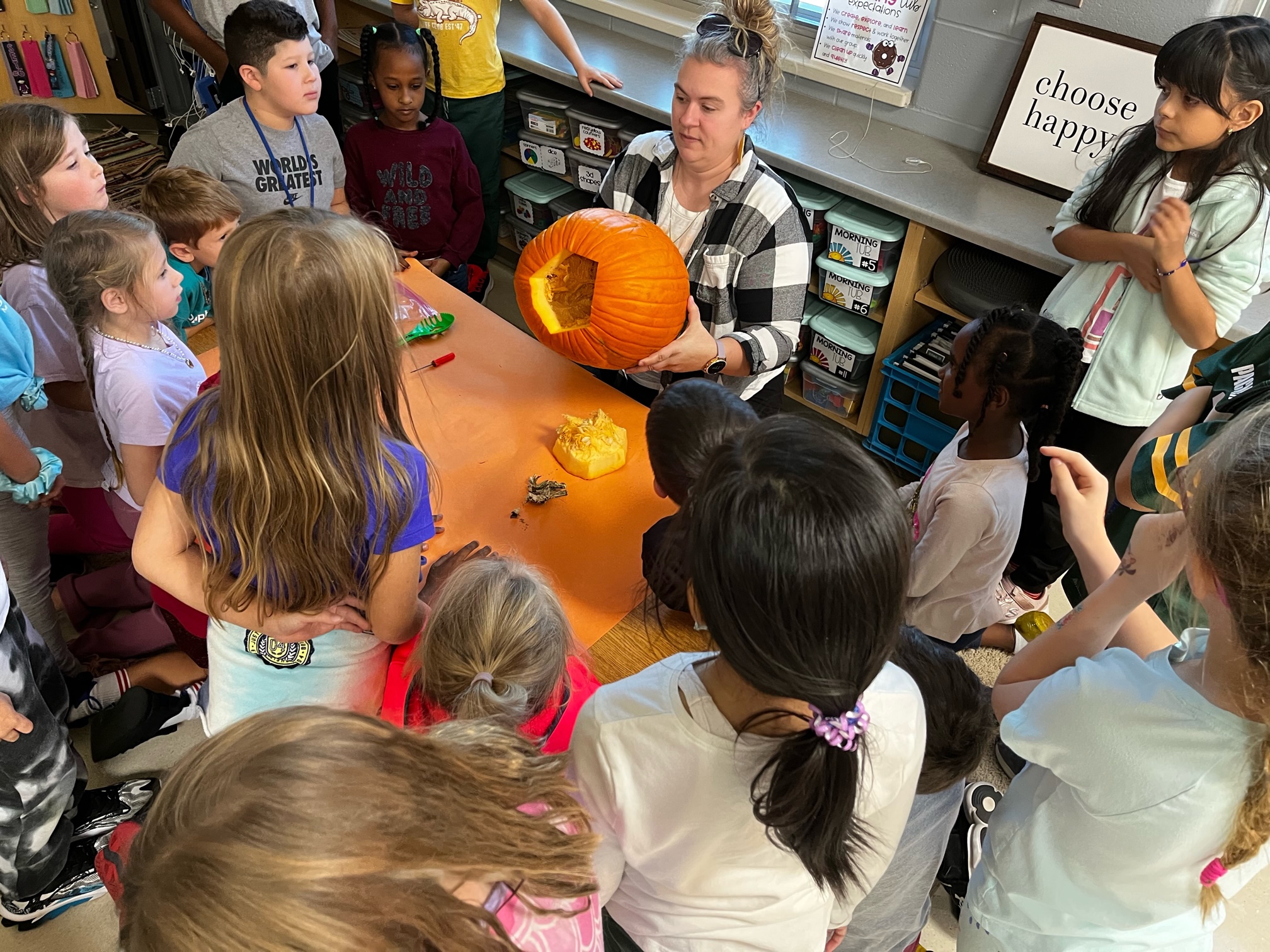 This program, offering a streamlined, accelerated path to an elementary education degree and special education endorsement, draws upon the experience and environments in which paraeducators work. Timing-wise, it filled a need and a moment of opportunity, with some tuition support for eligible students as part of a state (and COVID-) funded apprenticeship program.
This program, offering a streamlined, accelerated path to an elementary education degree and special education endorsement, draws upon the experience and environments in which paraeducators work. Timing-wise, it filled a need and a moment of opportunity, with some tuition support for eligible students as part of a state (and COVID-) funded apprenticeship program.
Program development pushed faculty to create an online curriculum and format to ensure students would be in position to student teach and graduate in five semesters, including summer. The first cohort accepted 67 students. A year later, 63 remain in the program and are preparing for student teaching next spring in their districts. The success of the program has led college leaders to share the COE story with others at national conferences in the past year. And, in just one year, everyone continues to learn what’s possible in online education.
“We found success with laboratory experiences this summer with the Purple Pathway by the development of science kits that were distributed to class members around Iowa through the AEA network,” says Robin Dada, head of Curriculum and Instruction and Special Education. “This allowed students who could not come to campus an opportunity to engage with experimentation and project development with materials identified by the instructor. The success of the kits this summer have informed future work in science methods for instructors at a distance from UNI, particularly in programs such as 2+2 or sections that are taught online.”
Purple Pathway for School Administrators, June 2023
The longstanding, primarily online principalship program is an anchor of the college’s online graduate education offerings (see related story). Taking advantage of the UNI@DMACC (Des Moines Area Community College) partnership, a dedicated cohort of 15 Des Moines School District candidates launched in fall 2023. Coursework is primarily online, with any face-to-face instruction occurring at the Urban Campus.
Special Education Endorsement, August 2023
Seven students joined the first five-semester cohort for a new, entirely online Iowa Director of Special Education endorsement announced in spring 2023. The pathway is intended for special education teachers, school principals and administrators and AEA professionals holding a master’s degree who are interested in leadership positions for PreK-12 special education at the district, AEA or state level.

